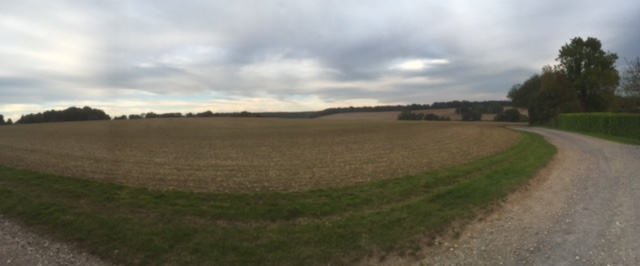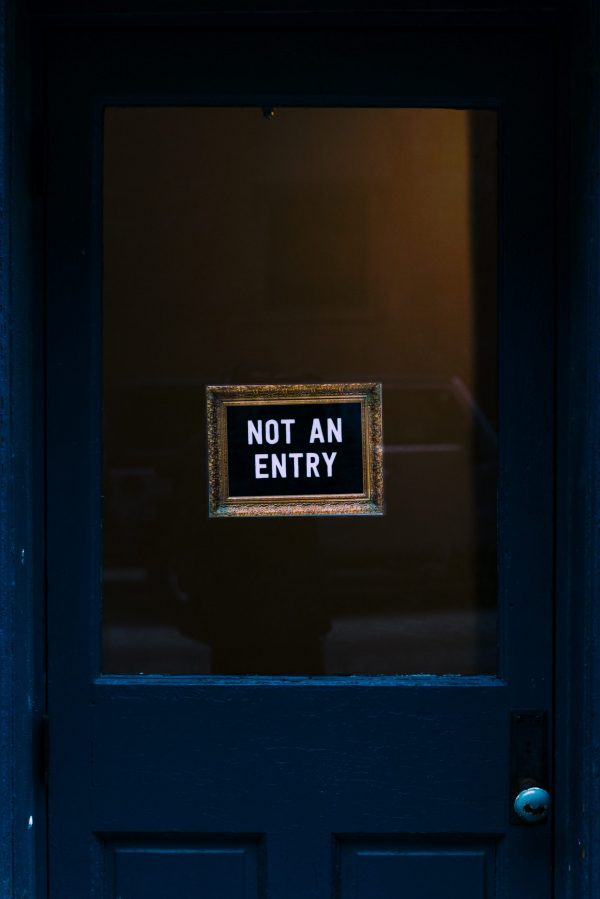Kith originally meant native land or country, not just in the sense of one’s place of birth or ancestry, but in the sense of a loving, intimate, friendly relationship with the landscape of home, the place you come from and the people and things that share it with you. Kith is not only the place you know and love, but the place that knows and loves you back.
Susan Beal, A Place of Love
We’re watching the UK election, and my daughter says: can you still vote there? It’s been so long, I’m not sure. I don’t think so.

But I know that in the background of every news shot, I’m watching the summer light in the sky and thinking about long evenings, and chalk and flint farmland. This is the practical condition of homesickness: at the sound of a thrush or the thought of a real beer in a proper pub, it flares up like a headache.
In the small community where I live I can drive past three homes I’ve lived in as an adult, and the ghost of another. Above the surf club there used to be a rundown weatherboard beach house that has been replaced by a showy oceanfront mansion. It was the first house I stayed in when I came here to work. It was rambling and unrenovated, filled with someone else’s Australian childhood furniture. I could walk out in the morning and drink a mug of coffee sitting on a low wall watching the sun come up over the ocean. I really loved it.
Since then we’ve moved around within a very small area, street hopping, trying to stay close to the ocean. Each of our three daughters was brought home from the local hospital to start life in a different house; finally when the older ones were very little, one and two, we stopped rolling and settled in the home where we now live. They all learned to ride scooters and bikes in this street, and then skateboards, and now two of them drive cars, more or less.

This morning I drove my daughter to her work, and then dropped off a friend of hers who had stayed overnight. We talked about how we each appreciate living in this place. She’s 17, she’s been away for six months and come back, and can’t believe her luck at still living here. I drove and listened, and didn’t say: I remember you when you were five years old. But what I was really thinking was that I didn’t grow up here. This is not my home. And everyone who was a child here, learned these streets by walking with small feet, will have a different way of seeing the big sky and the escarpment and even the wide Pacific ocean, than I do, because I still see it with a shock of not belonging, every day.
I have no kith here, and I shouldn’t. It’s not my place. It’s not my place to love, to ask it to love me back.
2
In March 1797 at Ninety Mile Beach in Victoria, five British and 12 Bengali seamen swam ashore after their longboat was ripped apart in a storm.
Sydney, a town of barely 1,500 people, was over 700 kilometres to the north. Meanwhile, their fellow-survivors from the wreck of the Sydney Cove were stranded further south, on a tiny island in the Bass Strait.
I listened to historian Mark McKenna tell this story on the radio as I was driving through this country that I see as beautiful, and where I didn’t grow up. The seventeen sailors washed up on a stretch of coastline still described today as “untamed”, and set off to walk. They walked for two months, running out of food and leaving people behind. On May 15, three survivors were seen from a fishing boat, crawling along a beach just north of here. They had walked 800 km. One was from Scotland, and one was Bengali. The other, I don’t know. They had foraged and swum and climbed and been poisoned by eating the wrong things, and interacted regularly with Aboriginal people without whose help and guidance and foodsharing they would not have survived.
What did they make of any of it? When they were rescued and made it to Sydney Cove, how did these three sailors feel about where they had arrived, where they had been? How did they come to terms with the fact of the people who had shared resources and knowledge with them, who had showed them where to go and what to eat and how to overcome their own fundamental unfitness to be in this country?
What did it mean to each of them, different as they were, to be so far away, to be so kithless?*
3
This week I’m part of a rolling conversation on digital citizenship as a metaphor for thinking about how we manage our aspirations, responsibilities and resources in creating an online environment that works. It’s an annual conversation curated by people who think and care about citizenship, and this year it’s run into trouble with the idea of citizenship as a metaphor for anything, in these times of walls and borders and sinking boats and offshore processing centres of astonishing cruelty and even, really this is a thing now, calls for a return to internment.
I’m one of those who feels that citizenship can’t work as a benign metaphor now, and perhaps it never could. I hold two passports and I can only see citizenship as a bureaucratic exercise in which I don’t know if I can vote in one place, but voting is compulsory in the other. I have bank accounts and pay tax in both; I have healthcare rights in both, just about. The apparatuses of both states treat me well, and recognise my children as connected to me. But none of this suggests to me that citizenship is anything other than the grounds of our refusal to care for others as we’d like to be cared for if misfortune tore us from our homes and threw us onto the mercies of others.
I’ve been helped in my thinking about belonging and statelessness by Amy Collier’s recent post on the hidden immigrant, the immigrant who passes in two places but is at home in neither. Amy asks whether this idea of belonging and not belonging helps us get beyond the difficulty of applying citizenship as a metaphor for what we do online (especially as this is far more obviously regulated by capital than by any state). At the end of her post, Amy raises the question of digital kinship, a term I’m drawn to because of the way it sits with ideas about kindness. Kindness (kin-ness) has ancient origins that connect us both to nature and to relationships, and took me back to kith (as in “kith and kin”), and the importance of knowing the place where we are, the way that knowing place nourishes our capacity to belong.
Where can we experience anything like kith online? Are there places that we love online, environments where we feel at home, that seem to love us back? Is this about user experience, or ethos? Is it about the trust we’re willing to place in design, in what data is kept and what is done with it? Can we feel at home under conditions of continual digital surveillance? Can we love a place that is manipulating us for business or political gain? Is it ever possible to experience kith when the whole thing is set up, controlled, regulated and organised in service of values we don’t share?
For the moment, it seems to me that these questions are worth asking, and move us beyond a narrow dispute about citizenship as a metaphor.
#digciz
Last week’s #digciz conversations came to rest on the question of belonging, and next week with my colleague Maha Bali I’ll be taking up the organisers’ invitation to think about what comes next. There’s a separate post coming about that. But in the meantime, we both hope you will join us next week on Twitter and other places where you feel at home online. You can read some of Maha’s thoughts on citizenship here.
*(kithless: not knowing anyone, having no acquaintances or family.)





14 Responses
This is so beautiful Kate. Thank you.
I’m really excited about you hosting this next week of #DigCiz with Maha and I love that you are bringing in ideas of home and belonging.
I’m at home here in the US but I’ve never really felt that I belonged necessarily. Most of the time I disagree with the political actions being taken in wars and military action. Trade deals focus on perpetuating power structures that I disagree with. I do vote. I served on a jury last year. I pay taxes. But belong… I feel like I belong in my neighborhood and in my local community…
In my youth I tried to escape – I did not want to be a citizen of the US. Coming from the socioeconomically depressed outskirts of Detroit with only a high school education prospects of leaving the country and establishing myself elsewhere were slim. I suppose I could have tried to find a husband across the boarder in Canada but I’ve never had luck with the idea of a husband… It would be about six years before I could pursue higher education as my family looked down on this as a form of government sponsored socialization that would just put me in debt.
I found a group that claimed to welcome all people from all nations, religions, creeds, and cultures. Many denounced the vote, many denounced the government, many denounced immunizations, many denounced citizenship. We were one human family they would say. There was lots of common law marriage and some would have home births so that they could never file for birth certificates to be sure that the babies could be free of citizenship and not be tied to these oppressive regimes. When policing needed to happen it was taken care of locally. Let’s just say I started to question some of their methods. I took a look around and was not really satisfied that this was in any way better. I ultimately left because I lost the sense of belonging in the local sense with them.
I went and got that government sponsored socialization and my father was right; I do have debt.
For the last two years of organizing #DigCiz Sundi and I have gotten folks who have pushed back on the idea of citizenship in terms of digital citizenship. That is not new. I agree that there is no formal “citizenship” on the web but I can’t help but feel and affinity for the word – note that I don’t mean that I like the word – I just think it is the right word for what I’m talking about. Your post here has helped me to realize something,
I think that I feel it is the right word because it makes me think about that tension between the identity that is assigned at birth and the one that develops as we grow. The tension between individual agency and collective collective action. There are a ton of other tensions too – I think it is a the right word for the conversation because of the tension that it generates. I want to find ways to resolve that tension. I don’t think that this is going to be an easy task. Honestly, I’m not sure it can be resolved entirely. I think those tensions are deeply embedded into the idea of citizenship and I’m not sure how to attempt to resolve them if I don’t look it in the face and call it what it is.
Thank you for your beautiful post and I’m looking forward to the conversations over the next several weeks.
I’ve been following the conversation about citizenship, and I’ve been really struck by your contributions which I’ve been reading closely. I could tell citizenship was a term of significance, and I thought there would be good reasons. This comment is so full of ideas, and especially of this idea of tension. Because I think you’re right, we can’t just throw citizenship out because it’s badly handled or has a murky history; it’s right at the heart of the privileges so many of us can take for granted. Citizenship gives us these privileges, we need to talk about it.
The unfinished part of all of these thoughts for me is commoning. I really want to think more, and understand more, about the commoning movements that are springing up, and whether this is a fruitful way forward for a conversation about how we shape an online world that is less toxic, more generative. The really big and obvious metaphor for this place of all of this is climate.
And changing the climate of our online culture is going to be as hard as any other climate deal.
Thank you Autumm for your leadership in all of this, and for this piece of the backstory. What an interesting journey.
Thanks Kate. As usual, your post is so thought-provoking. I have experienced a similar yearning to that you describe for your kith but because my family moved around when I was young I don’t yearn for kith of where I was born (that I left too soon to have many memories) but multiple yearnings for homes and times of life rather than kith.
Having done some family history, I see that we have itchy feet in our genes 🙂
I have posted a couple of times to #digciz but have found the arguments about the semantics of citizenship unenticing. I posted links to Josie Fraser’s post on Digital Citizenship that she sets in context. In thinking about what you wrote and my own reflections, I wondered about the benefits of being a wanderer (and thinking about what Amy Collier wrote) about the possible benefits of lacking kith. Rather than being given by a ‘Power’ perhaps the experience of being kithless can give us the gift “To see oursels as others see us!” as Rabbi Burns says (I was born in Scotland but it isn’t my kith).
Frances, this is a very welcome set of thoughts as I realise that the other dimension to this is that where I feel kith, where I grew up, isn’t where I was born either. I was born into a colonial family in Kenya, and I think my earliest sense of the emotional confusion of kith was moving and growing up in England with a parent who could never feel at home because she herself had been born and grew up in a country that had (appropriately) rejected her presence. So I have a dominant memory of mum always being cold, and I realise this was a way for her to bring her Kenyan childhood into the conversation even though it wasn’t possible politically for her to reminisce about it.
Oh poor Mum – having to deny her childhood 🙁 A memory of my mother was her telling that in England her accent was perceived as Scottish but when she went back home to Scotland they said ” You’re aye English Elise”. My older brothers experienced the same but I at 4 anglicised my accent rapidly. I saw my own children do the same as we moved around – there’s a big benefit at school to fit in. And that’s not so good.
Knock knock a check to see if my comments have some kith here
Hearing you loud and clear. This one made it through. Welcome.
(a second try here, a most eloquent and perfectly spelled comment earlier today was chewed up in the kithless machinery of WordPress.com login).
I believe I have heard the phrase “kith and kin” Kate but in an act of lazy reading have let the first word fly by without exploration. Now from your post, and especially the Susan Beal quote, it’s more than just in my vocabulary.
And so too, excuse what is a blog length comment, though I never really have to see that in your hospitable blog. It saddens me that blog comments seem to have not much mome either. But that is another bit of whinging.
In my words I slip into the messy area of sounding like my experiences extrapolate more generally to others, yet it’s just a bit of my own experience. Your post does not say it, but perhaps suggest kith is most prevalent for our birth place.
I can conjure up with great familiarity the east coast US suburban location of my youth, really the only house/home I knew from age 2 til 18/ I can visualize all aspects of it, I can feel the closeness of humid summer air, the crunch of the sidewalks I walked that led to school the sound of the 17 year locusts I heard twice. It’s comfortable, but I feel little kith, no draw. My last bit of curiosity waned after a dry by visit more than 5 years ago. It’s a place.
Where I know this feeling, and where I had no name for it until now, is my current tiny plot in Strawberry, AZ. I know it in my bones. But the thing is,it was not supposed to be that way. My home was a vacation place purchase with my ex; it was dreamt as where we would retire, maybe expand, or just live out our days together. We did a lot of work there together.
But when the marriage sputtered and fractured, and that home became “mine” the first 2 years I found it haunted with broken futures, furnished with my mistakes and decorated with our failures. I envisioned moving to the sad coast of Oregon, staring wistfully into the waves.
However, the real estate crash of 2008 kept me from being able to move. So I traveled a lot. And when I was home, I began putting myself into it, sweat, blood, moving rocks, painting walls, replacing furniture, putting my soul into the earth. I cannot even remember the part where it felt so right, the place I felt most alive. It loves me back.
And it was more than the little house and 1/3 plot- it’s the quality of light there, the dry air, the solitude, the “not like city/suburbia” to it.
So when I tried in 2012 living back east, it was maybe 7 months before I felt my land’s pull, and I returned. Even landing at Phoenix airport in July with 115°F temperatures, I felt home.
I say all this that kith maybe can be found in places other that our start point. Or at least I did. Or that it is not just the place or just us but some complex formula that comes from both, and also intertwined with the ideas of “kinship” Amy wrote of.
And so the digital kith, if there be such a thing, is not about a platform, but some complex function of what it provides, what we give and get there, what e get and give from each other.
I am so thankful you have shined a name on something I have known but have had no name for before.And I am fortunate (a) to have the capability to own my little kith place, but also, the soul security of being elsewhere and knowing it is back there, waiting to be loved and love back.
Alan, this is such a beautiful story of making place. Weirdly, I had a stronger sense of kith place with that first rundown beach house, and this thought took me back to an old favourite, Gaston Bachelard, writing in the 1950s about the poetics of space. Bachelard introduced me to the concept of the home that is in our dreams, that we dream up: the oneiric home. It seems to me that sometimes we encounter a sense of place that connects to a feeling at home, like you do with the desert, and I did in that abandoned beach house that I still mourn. I realise that I often dream about abandoned unrenovated homes, and rooms that open onto rooms. I don’t think this is because I have particularly grand wishes to live in a chateau, just that there is a specific type of abandoned building that for me connects to something difficult to describe, something about home.
Family, finding, friends, earth, becoming – it is a process that is (or feels) completely different for people. I had to find the place where I have kith, but it was almost as if I could do nothing other than that, and was drawn there like a magnet. Then having found it, somehow it seems possible to have it, kith – or maybe bring it? – or find it? in the different places I am. (that is an awkward sentence, but present tense state of being is right for what I mean- if I am ‘going’, it is not there; if leaving, it is not there – I think Kith has something to do with being, resting, allowing, accepting.
Sometimes my kith is with people I have met once – and there can be a bond stronger than blood. I am sure there are other people who have kith with a long-lasting community they have roots in for centuries. It is important to understand that there are differences that we may not ever know (internalise through like, lived experiences), but can respect the concept at the core – the kith, although our individual experiences may look so different on the outside. That’s where the citizenship comes in for me.
Kate,
I think, as I look at who has left comments before me, that there is indeed kith that is following you, that a digital community is filled with nomads willing to flit from one location to another, a behavior that Alan Levine, in particular, appreciates given his penchant for decentralization.
I followed your link to Amy Collier’s post and, given that it was just two weeks ago that I met her in person at her office (we started with twitter, went to email, then had phone conversations that wound like balls of twine) I particularly appreciated her shared sense of not knowing where she belonged.
What I said to her was this: I think all of us who wander away from our place of birth — be we Third Culture Kids or, simply, nomads — always feel a loss of belonging, a lost of kith as you articulate so well. And part of the reason, I think, is that most of the places where we were born and grew have changed and changed drastically. My hometown was a place of 640 people where my Dad was the doctor and, despite polio and necessary braces and crutches, still made house calls and was paid, most times, by a smile or something in-kind which often included a watchful eye on “Doc’s kids.” We had no policeman; order was kept in a quiet way where, if someone went awry and stole something or damaged something, then the miscreant would be found out and dealt with — restitution would follow. I remember as a kid helping my mother in the week before Thanksgiving as she cooked turkey after turkey after turkey and one of the volunteer fireman would stop by and deliver it to a family whose name we knew not.
That is all gone. My town became a weekend community and land prices soared and all my generation could not afford to stay. So the fabric, the fibers of the community, was torn. The kith was gone.
So I know that what I do now is find my kith in lots of places and, combined, I get what I need, though I confess to yearning for something deeper, for that place where I am the fifth generation of my family and the hills and valleys are filled with memories of events and laughter and stories and hardship and success and kinship that is imprinted on my DNA. But, lacking that, and, as Amy puts it, not knowing, exactly, where I belong, I connect with kids on https://youngwritersproject.org (and they do feel kith on this space) or on conversations on Twitter or Mastodon or in exchanges/comments on blog posts such as this. I find kith in words. Exchanged. And appreciated. Reciprocal connections of kindness.
So thank you for this post. And for your writing.
And as a total aside, (and in the context of your Mastodon reply about our work with kids on the Moth Stories), please feel free to sign up on https://youngwritersproject.org for a closer look (we manually approve all accounts, so be patient)) … and, if in your own work, you’d like to recreate or, as you say, apply more “disciplined practice” and “scaffold” better, let me know if we can help or if our platform (we have a closed version for teachers) would be of use. Just holler. And I’ll holler back.
Be well and thanks again for this. A collection of great stories, threaded with some fascinating observations. You made me think. And that’s always good.
g
[…] Kate Bowles – Kith […]
[…] As kids walked across the stage, large families cheered. How does it feel for those families to cheer loudly in this setting? Will they cheer as loudly for their same grads at the non-aboriginal school ceremonies? I could sense strong Kith. […]
[…] 2017 happened. And life and conversations kept happening, and people kept writing like Amy and Kate and Adam and Maha have been writing about place and home and belonging and growing up and […]